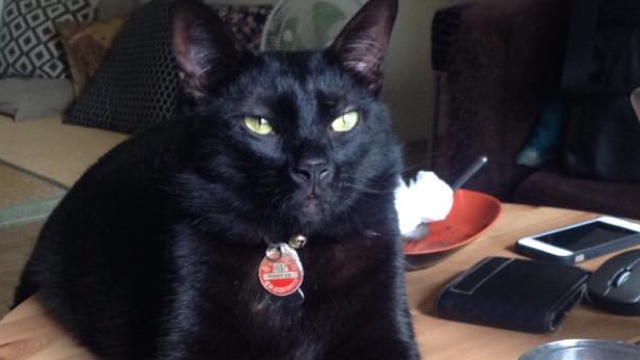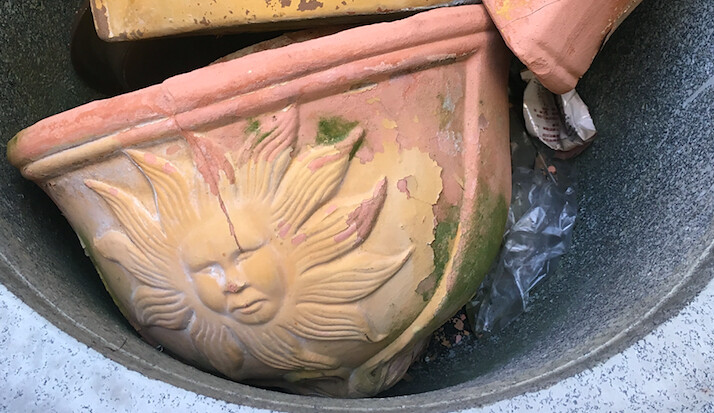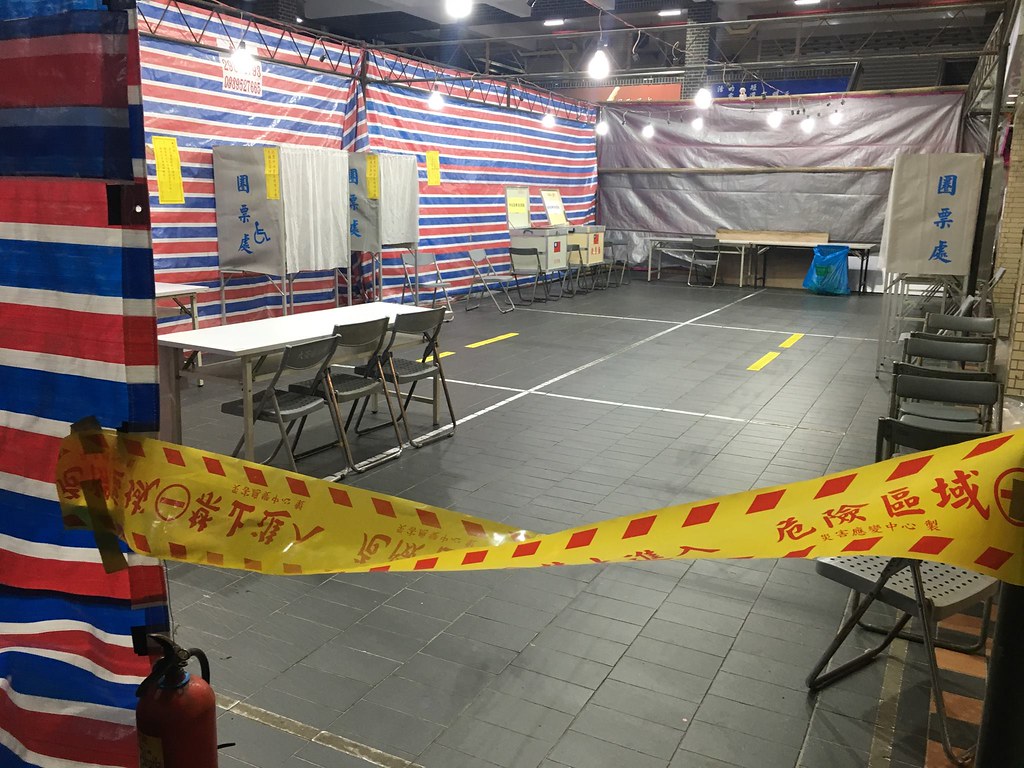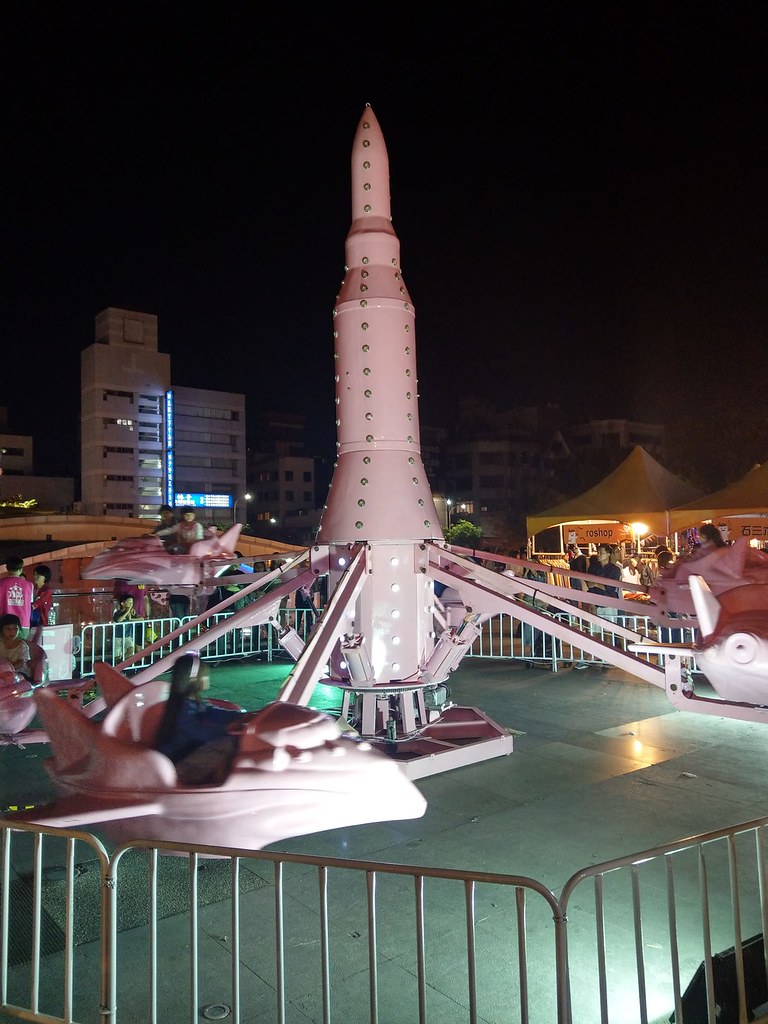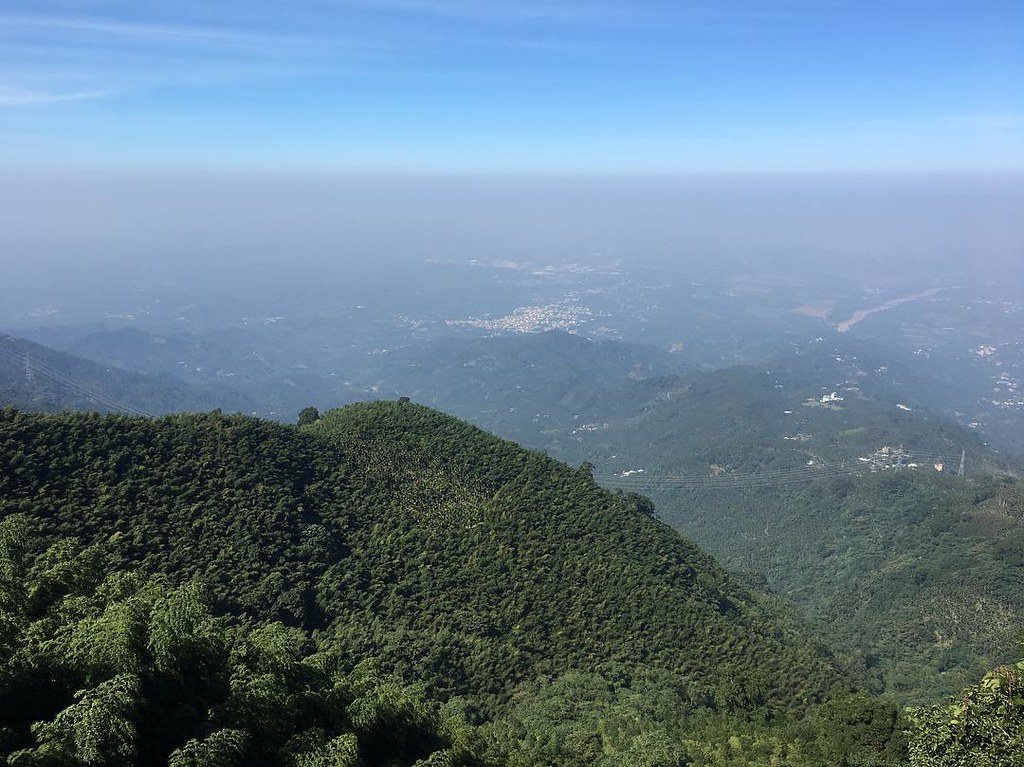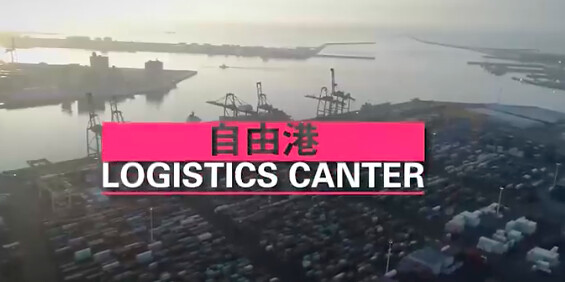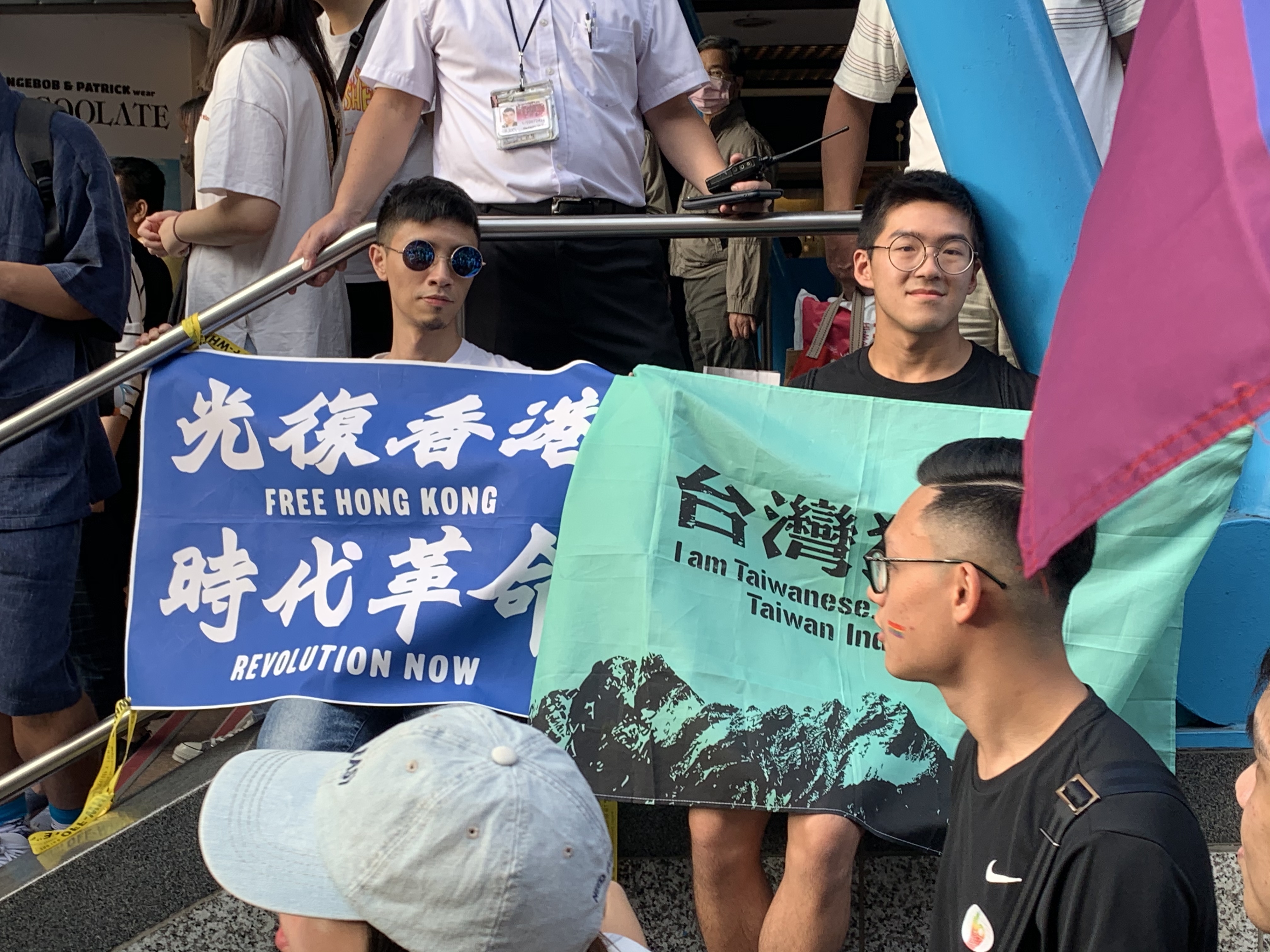
Another day, another opinion piece about whether the Chinese government's reaction to the Hong Kong protests will hurt their image in Taiwan, and therefore their chances of convincing Taiwanese that closer ties or even eventual unification. This one comes from Bloomberg, a perpetual font of bad writing about Taiwan. It's become so commonplace, though - the well-founded criticism of China, backed up with some nonsense about how the Chinese government could alienate Taiwan and sour any hopes that Taiwan might willingly "return to the fold" - itself an inaccurate description of the situation.
Or, as Richard McGregor puts it in Bloomberg:
Without a change in its approach, the Communist Party risks making the already difficult task of winning over the self-governing island next to impossible without force....
Amid the Hong Kong protests, the last thing the Communist Party should want is a rebuff from voters in Taiwan. Yet Beijing has shown little interest in modifying its stance. The inevitable result is that Taiwan has become even more alienated from China....
A decisive victory for Tsai in January’s election might chasten Beijing and cause it to return to a more consensual strategy. But the example of Hong Kong doesn’t so far give much hope that Xi will change course. If China continues to double down, the eventual denouement for Taiwan may be far more dangerous.
What these sorts of articles universally overlook (or intentionally ignore) is that the CCP's stance and behavior only play a small-to-moderate role in Taiwan's desire for independence and lack of enthusiasm for unification. In fact, it wouldn't matter much if the CCP adopted a more conciliatory stance on Taiwan: there is no "consensual" strategy available to China because it's quite clear that Taiwan wants independence regardless.
That's not just my opinion - it's reflected in the data as well.
Poll after poll shows that deepening Taiwanese identity, which tends to go hand-in-hand with belief that Taiwan simply is independent and should remain that way. Most strikingly, these beliefs have not only blossomed since democratization in 1996, but only grew during the Ma Ying-jeou era, when the CCP was at its most conciliatory.
According to data published here, in 2008 (when China-friendly Ma took office) 64% of poll respondents said that Taiwan, even as the 'Republic of China', was an independent country, though only 22% of people thought China would use economic tools to force political concessions. According to this more detailed account, the number of people who identified as solely Taiwanese and those who identified as both Taiwanese and Chinese were both in the mid 40% range, with solely "Chinese" identification being quite low, at 3% - about the same percentage as non-respondents. This source says the same thing.
Then what happened? It was an era that some people still label as having "warming" or "closer" relations between Taiwan and China. You'd think that it would result in Taiwanese feeling closer to China as well, right?
Wrong.
Look at that data again. Taiwanese identity only increased from 2008 to 2016 - especially after the 2014 Sunflower Movement. The sense that Taiwan/the ROC was independent increased as well. Fear of China's 'conciliatory' economic gestures being guises for political force spiked, because...duh, they were.
It didn't matter how friendly China was to Taiwan. It didn't matter that Chairman Xi and President Ma got cozy in Singapore. Taiwan wasn't having it. If anything, CCP efforts to be 'nice' only exposed the truth: that none of it was sincere, and none of it came for free. All of it created greater economic dependency that would make eventual extrication under 'colder' ties more difficult, and it didn't even benefit Taiwan that much. Economic growth under Ma was not more impressive - and in some ways it was less so - than during other less 'China-friendly' administrations.
Taiwanese identity blossomed not just in response to this realization about China, but also as a part of a natural upward trajectory. That makes sense. Before democratization, it was difficult to freely form, let alone express, a true sense of identity in Taiwan. Taiwanese history was taught as a part of Chinese history in schools and you could face repercussions for expressing a different view. It's only reasonable that once those restrictions were lifted, Taiwanese people would look back at their own history - which was by and large not as a part of China, even if their ancestors came from there - and form a stronger sense of identity, which would increase over time.
It doesn't make sense that a friendlier stance from China would stem this tide, and indeed it did not.
While some of these 'Taiwan identity' numbers dropped again after Tsai assumed office in 2016, note that none of them dropped very much and all of them are on the rise again. Dipping from around 65% in 2016 back to the mid-50th percentile, and "Taiwanese and Chinese" identity experienced a slight bump from about 32% to about 38%. At the time, people worried that the Sunflower effect might be ephemeral and numbers might dip even further, but that didn't happen. Instead, sometime around 2018-2019 numbers began to rise again. The gap between "Chinese and Taiwanese" and "Taiwanese only" identity that began in 2008 - again, during China's "friendly" years! - only widened over the next eight years never came close to closing.
The reason for the change probably has something to do with Hong Kong and China's response - it would be silly to say it's not a factor. But if these poll results were released in the summer of 2019, the actual poll was probably conducted a fair bit earlier, that is, before the protests really got underway, if not entirely so. That was also around the time that Han Kuo-yu started to gain popularity among some segments of the population, and strongly turned off others - reminding them, perhaps, that games with China cannot be won and are best not played at all.
Considering this, I'd put that 2016-2018 blip down to Taiwan's natural tendency to grow critical of its leaders. Tsai was elected, the Sunflower high wore off, and now that "our person" was in office, and it was time to start nitpicking on her inevitable flaws.
It's also worth noting that during this time, "Chinese only" identity - the one most closely tied to openness to unification - did not experience a bump. In addition, if you read that Washington Post article again, you'll see that Taiwanese youth have a huge role to play. The current generation of young adults overwhelmingly considers itself Taiwanese, and those numbers don't seem to have budged much at all. Anecdotally speaking (because I have no data!), that generation was also the most strongly critical of President Tsai during the labor law and marriage equality wars. But it was also quicker to re-embrace her when the terrifying spectre of President Han began to loom, Hong Kong started getting dicey, and marriage equality finally passed.
And if you grow up simply thinking you are Taiwanese and your country is Taiwan, and there's no reason to question that because why would there be?, the chances that China could ever "win you over" are remote indeed.
So why do people still think China has a chance?
Because they're looking at only recent data, not going back to the 1990s, or even 2008. They've also been convinced by an international media that posits every issue facing Taiwan as being related to China in some way because China gets more clicks (even when they clearly not), when in many cases the reasons behind why Taiwan feels the way it does are mostly, if not entirely, domestic.
When you look at it that way and ignore the history of Taiwanese identity, things like this sound more plausible:
Over the past year, Beijing has single-handedly revived the electoral prospects of its political adversary, incumbent President Tsai Ing-wen of the independence-leaning Democratic Progressive Party. At the turn of the year, Tsai’s approval rating was a miserable 24%. Now polls show her with more than 53% support versus about 31% for Han, whose Kuomintang is the natural ally of Beijing. That Nationalist party retains deep ties to the mainland as the former government of China until it lost a civil war to the Communists and fled to Taiwan in 1949.
When, in fact, almost everything about it - and other opinion pieces that use this data point as evidence - is wrong.
It's true that Beijing has helped Tsai to a degree, but "single-handedly" reviving her electoral prospects? I think not. Domestic issues have played just as much of, if not a greater role.
"...the independence-leaning Democratic Progressive Party"? True, but misleading. It makes it sound as though being pro-independence is a platform of the party and not a common, majority belief in society. That's not the case. The will of Taiwan leans toward independence, and the DPP happens to better match it than the KMT, which often has to hide its closeness to China behind obfuscatory language. Even if Han wins in 2020 and the CCP puts its "the abuser is being charming to win you back" on again, don't expect the general pro-independence sentiment to change much.
Plus, "a miserable 24%"? Rick, do you even follow Taiwanese electoral politics? 24% is pretty normal for Taiwan, and every president who has eventually won re-election (a grand total of two people so far) experienced a huge dip in their first term approval ratings. Taiwanese love to criticize their leaders, so while that wasn't a great number, it also wasn't "miserable" or even out of the ordinary. Besides, that number seems to have come from a KMT poll - unless someone has evidence to the contrary - with another non-KMT-funded poll published around the same time, in May 2019, showing her support at 33.8%.
Let me finish by simply re-stating the obvious: articles like these are harmful to Western perceptions of Taiwan, and to Western readers' understanding of the Taiwan-China situation in general. I mean that: a good friend emailed me recently positing that China's harshness with Hong Kong might "turn Taiwanese off" to "reunification" after reading the New York Times. (He got a kind talking-to, don't worry.)
People like Richard McGregor and media outlets like Bloomberg, then, actively peddle untruths and misleading notions. The "denouement" for Taiwan was always going to be dangerous, because China might offer some economic enticements or use friendly language, but it's never going to give up on unification/annexation. It's only possible to envision a violence-free denouement if you believe that Taiwan could possibly be persuaded to embrace unification - but that's highly unlikely.
It's clear from decades of research that the Taiwanese sense of identity and national sovereignty has deep, domestically-grown roots - history, cultural evolution, geography, democracy - that anchor it firmly as a place apart. How China approaches Taiwan is just one tiny tendril of a massive banyan that neither China, nor the international media, nor Bloomberg, nor Mr. McGregor here, seem to understand.
In fact, we've seen this play out recently. When China tried to reach out to Taiwan again in hopes of raising the prospects of its flailing puppet candidate Han Kuo-yu with its "26 measures", the reaction was one of near-universal disgust. It's clear to Taiwan that when China 'buys' you, they're not the ones paying the price.
This isn't just about China's treatment of Hong Kong in particular so much as China's vision for all territories it considers to be "Chinese" in general. The only way not to see this is to assume that China's vision is fungible, and that what it offers Taiwan and Hong Kong could ever be anything other than oppression. In events like the Hong Kong revolt, all China is really doing is showing its true face. Taiwanese people aren't dumb; they see that.
So please quit it with the fearmongering that China is "driving away" Taiwan. It's not, really. Taiwan got in the car and drove its own damn self away decades ago, and it's not coming back.



